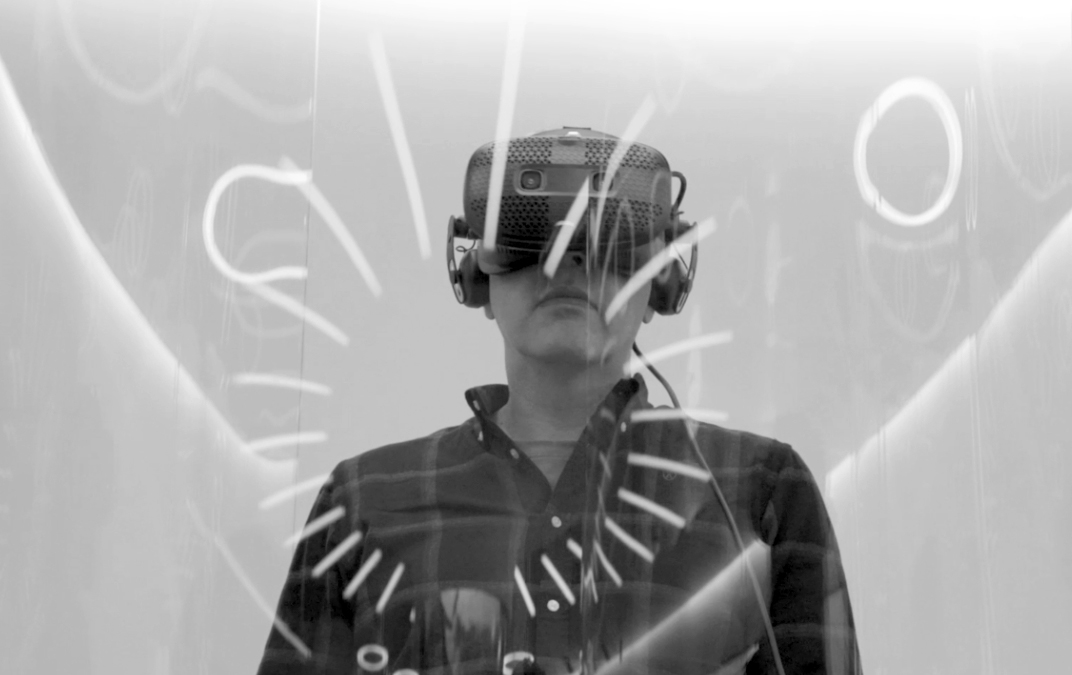The Alpha generation: who they are and what world we are leaving them
- Date
- Written by admin
The most veteran members of the Alpha generation have just gotten their first cell phone (92% of Spanish children have it by the time they are 11 years old) and they are ready to enter the dreaded ESO. The youngest Alpha's are being born at this very moment. Four, exactly, as you finish reading this article. They are the environmental natives, a generation called to fulfill a mission: to save a planet that their predecessors have left them badly wounded.
What is the Alpha generation? In figures, there are 5 million children born in Spain between 2010 and 2021. They are the younger siblings of generation Z.
It is risky to make prospective of a generation that is just taking its first steps. And foolhardy to go beyond a demographic description or historical contextualization. The latter is what I attempt in this article, although I will venture with some subjective prediction.
We always talk about generations from the point of view of the victors, as George Orwell said of historians. We usually bias the analysis to the to impose a Eurocentric and patriarchal vision. In other words, we believe that everyone is born, as we are, in optimal conditions, that they will live and work in the first world and will inherit a culture, ethics and worldview like ours.
We also do it with a technophobic view: Baby Boomers, as our elders warned us, we were going to end up being so delusional from so much idiot box and watched over by Big Brother. To the Alpha we already imagine them as cybernetic centaurs, turned into avatars, incapable of making decisions and controlled by Big Data. Prejudice repeats itself.
Another self-critical note: to lucubrate about the Alpha generation by associating it with the smartphone, veganism or metaverse is obscene while 160 million children, including Alpha, still work as slaves in the world and an even larger number cannot choose what to eat every day because they simply have nothing to put in their mouths. So, to understand each other, when we in the media and advertising talk about generations like Z, Alpha or Y, we do it with one objective in mind: classify them as buyer persona.
Between hope and apocalypse
The view of the moment in which we live - pandemia, alienation, polarization - tends more to pessimism than to hope. I am closer to the optimistic view about the Alpha generation, but I describe both for your reflection.
The apocalyptic look
The Alpha's are smartphone addicts. Wasting an average of 6.43 hours a day online. Forty-four percent of ESO students say that they go online so as not to feel alone. And 58%, to make friends. This is the activity to which they devote most of their free time, according to a recent UNICEF macro-survey, which offered a revealing fact about their digital experience: 60% recognize that they have more than one profile on the same social network: the official one and the hidden one, one to see and the other to be observed. They have learned to circumvent parental supervision with a double digital life.
Cases of anxiety among young people have increased by 280% during the pandemic, self-harm by 246% and suicidal ideation by 244%, according to data from the ANAR Foundation. According to Save The Children, one out of every 6 children in Spain showed symptoms of depression during the pandemic, motivated by concern over her parents' unemployment and the lack of money at home.
In the worst-case scenario, over the course of their lifetimes, the Alpha will see how the earth's temperature will rise by 4°C. Droughts, floods, famines, migrations: an apocalyptic scenario that leads us to a melancholic vision of the world and that we adults are unconsciously passing on to children and young people. We have already heard, and so have they, that 1 billion children live in areas of high climate risk.
The future is ominous, rather than promising. As the philosopher José Luis Villacañas argues, "the acceleration we are experiencing and the perception we feel of a catastrophic future erases the idea of hope and only the notion of survival perseveres, where the future is perceived as a large warehouse of catastrophes that come to us".
We have instilled in them a sense of bewilderment at the sensation of incessant change, as Anne Helen Petersen argues. That world wearinesswhich already appeared in Ecclesiastes and was diagnosed by Hippocrates, together with the unfulfilled expectations of the Millennial generation, to whom more myths than truths were sold, according to the American author, has led to the burnout generation syndrome. And children absorb that frustration every day.
The hopeful view
The feeling of guilt. We (Boomers) have done it wrong. We have left them alone and equipped with technology without an instruction manual. We were instilled with an unhealthy competitiveness, as Petersen denounces in I can't +. How millennials became the burned out generationand we have replicated it in our children. "We're drowning and they don't realize it", says Pablo Gavira, one of the actors starring in Jonás Trueba's film "Quién lo impide" about the Z generation. "They float, rather than live, on unfulfilled promises," Jacques Audiard recently said.
It is as if we have hit rock bottom. And it's time to start picking up again. Alarm bells are ringing and initiatives are multiplying to encourage a more creative and less passive use of technology.With so much digital life we have no time for reflection and contemplation. Generation Z will long for the time lost between confinement and digital saturation-Netflix has acknowledged that its biggest competitor is sleep-and, when they become parents, they will want their children to enjoy more time and nature. The concept of happiness will prevail over the lure of success.
Solidarity. According to the same UNICEF survey on Spanish adolescents, 10% of them volunteer. They will be fewer, demographically, and they will have to get to work together to change the world they have inherited. All surveys reflect a hopeful agenda in the new generations: nature, physical and emotional well-being and equality are at the top of their pyramid of values.
Rebels. The previous generation, the Millennials, lived excessively watched over and overprotected by their parents. No time to live in a feral way, with everything continuously measured and focused on success. So a reaction from the Alpha to this constant monitoring is to be expected. Moreover, they will have weapons for it because they will master the tools better than their elders. They will have the opportunity to rebel against the precariousness and uberization of the economy, to ask themselves why they were compulsively exhibited and recorded by their parents, and to questioning the gospel of productivity.
Darwin's vision: they are fewer and more diverse
They are fewer
The Alpha Generation is made up of exactly 4,563,189 boys and girls born in Spain between 2010 and 2020. If we add the nearly 330,000 that will be born during 2021, we are talking about 5 million people. The birth rate has declined in the last decade, from 2010 to 2020, by 30.3%. In the next few years, unless the doors are opened to immigration, schools, kindergartens and colleges will close and there will be difficulties in filling certain types of jobs. The current ratio of 2 workers to 1 pensioner will be reversed.
They are more diverse
They are quantitatively less numerous than Generation Z, but more diverse. Some 22.5% of Spanish Alphas are children of foreign mothers. This does not include those who are already second generation immigrants. In the case of Catalonia, those born to foreign mothers account for 33%; in Madrid, 25%. A society with more diverse cultural roots that is not yet reflected in advertising, the media or in areas of power.
They will have less and share more
In 2005, 2 million vehicles were sold in Spain each year. Today, the figure hardly exceeds one million. In the same year, almost 1 million homes were sold per year. Twice as many as today. Apart from the cyclical movements of the economy, we are witnessing a change in consumption and ownership patterns. Spending on technology, travel, sports and entertainment is imposed on the possession of other goods, already unattainable, on which previous generations based their happiness. As The Future of Laboratory predicts, future consumers will form "shopping crews". Consumption will also become more collaborative.
Jules Verne's vision: from digital natives to climate natives
Environmental or climatic natives. They were born with the mission to save the planet that we have bequeathed to them, badly wounded. "We are digging our own graves," said UN Secretary General Antonio Guterres a few days ago at COP26. It is up to them to get down to work and close the environmental wound at the same time as they suffer its consequences.
The influencer most famous child in the world is called Francisco Vera. He is 12 years old and has participated in the Glasgow climate summit. "To children my age I say: Be influencers in favor of life. You don't need to have thousands of followers in the networks, anyone can be one in their territory, in their family, with their friends," he proclaims to his half a million followers in the networks.
Mortgaged natives. The poisoned inheritance we are leaving to the Alphas is not only environmental. It is also economic. Every child born in Spain today has a debt of 30,000 euros under his or her arm.. Public indebtedness stands at 122% of GDP. When their parents came into the world, for example in 1980, they inherited a debt per capita of 425 euros and 16% of GDP. When the Alphas reach working age, they will carry an unbearable debt resulting from the financial crisis of 2008 and the pandemic of 2020, in addition to paying for the pensions of the Boomers. An explosive social cocktail.
Rainbow natives. In 2005, same-sex marriage was approved in Spain. The fight for LGTBI rights has dominated the global agenda for the past two decades.. The normalization of homosexuality was unthinkable for previous generations, and discrimination has plagued the lives of millions of people. According to a Pew survey, 35% of Z's in the U.S. already preferred to use the neuter gendercompared to 12%, for example, of Boomers. And 59% demand that there be more gender options on the forms, other than Male and Female.
They will see a world unknown to us that they will build as they learn from our mistakes. With their Alpha Code they will break with the status quo. They will reach the 22nd century with a population of 11 billion people distributed in a very different way from today's, after a migratory process that will change the course of history. They will surely be witnesses of the dawn of real equality between men and women in a large part of the planet.
Good luck, dear Alfa, and don't pay too much attention to us.. You are the first of a new era and you have every right, along with your Z colleagues, to dream the world differently.

